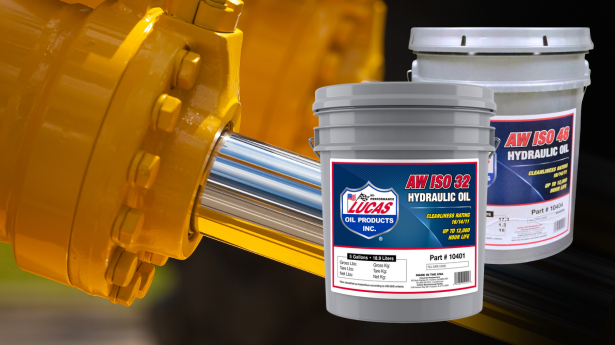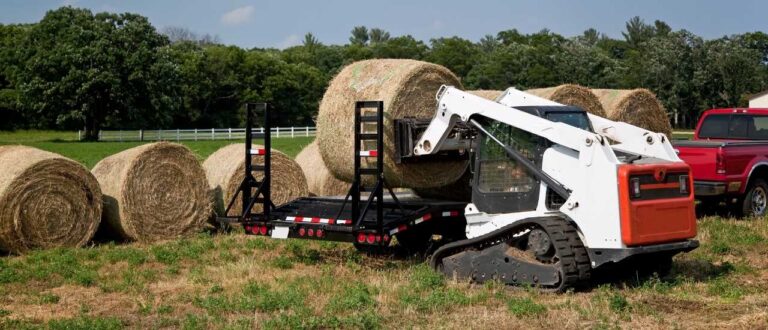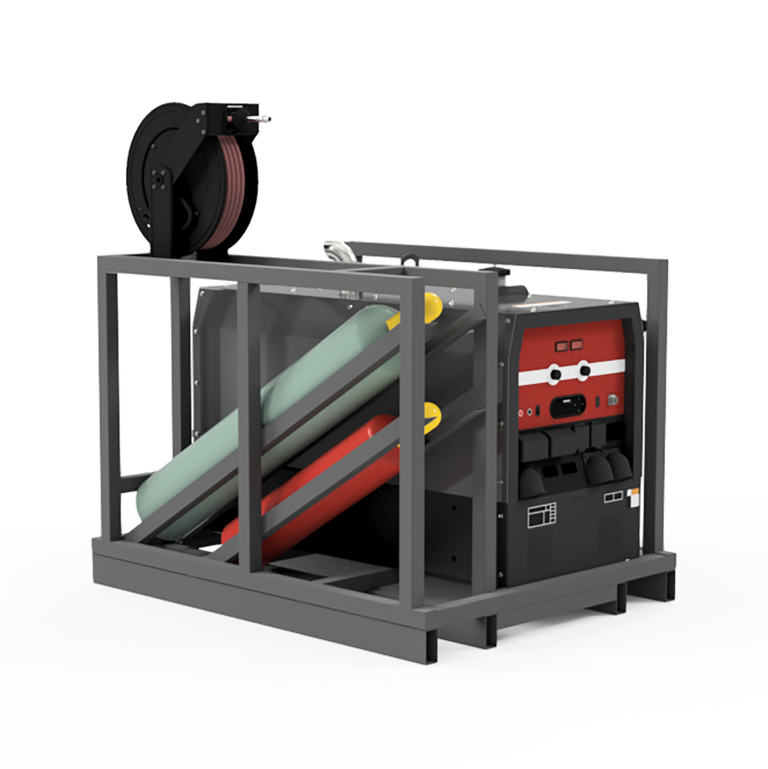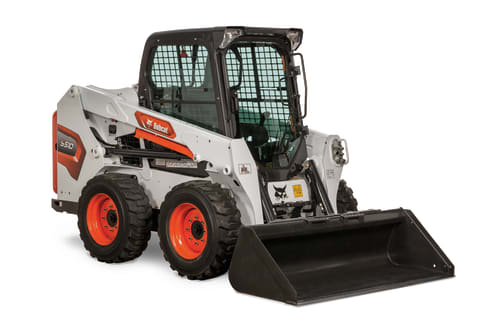Which Hydraulic Oil is Thicker? Unveil the Viscosity Secrets
The thickness of hydraulic oil is determined by its viscosity grade. Higher viscosity grades indicate thicker hydraulic oils.
Hydraulic oil plays a crucial role in various machinery and equipment. Choosing the right viscosity is essential for optimal performance and efficiency. Thicker oils provide better lubrication under high pressure and temperature, making them suitable for heavy-duty applications. Conversely, thinner oils flow easily, making them ideal for lighter operations.
Understanding the viscosity ratings, such as ISO 32 or ISO 46, helps users select the correct oil for their specific needs. It’s vital to consider factors like operating temperature and system requirements when selecting hydraulic oil. By making an informed choice, you can enhance the longevity and performance of your hydraulic systems.
The Essence Of Viscosity In Hydraulic Oils
Hydraulic oils play a crucial role in machinery. They transfer power and keep systems running smoothly. The thickness or thinness of hydraulic oil is defined by its viscosity. Understanding viscosity helps in choosing the right oil for your equipment.
Grasping Viscosity And Its Importance
Viscosity measures a fluid’s resistance to flow. Thicker oils have higher viscosity. Thinner oils have lower viscosity. Choosing the right viscosity affects the performance of hydraulic systems.
Key factors affected by viscosity include:
- Lubrication: Thicker oils provide better lubrication.
- Temperature: Viscosity changes with temperature.
- Pressure: High pressure requires specific viscosity for optimal performance.
Measuring Viscosity: The Technical Side
Viscosity is measured in centistokes (cSt). Different oils have different viscosity ratings. Here’s a simple table showing common hydraulic oils and their viscosities:
| Hydraulic Oil Type | Viscosity (cSt) at 40°C | Viscosity (cSt) at 100°C |
|---|---|---|
| AW 32 | 32 | 5.5 |
| AW 46 | 46 | 6.8 |
| AW 68 | 68 | 8.8 |
To measure viscosity, use a viscometer. This tool determines how easily a fluid flows. Higher readings indicate thicker oils.
Choosing the right viscosity is essential. Consider the operating conditions of your hydraulic system. Use oils that match the required viscosity for better performance.
Hydraulic Oil Basics
Understanding hydraulic oils is essential for machinery performance. These fluids play a vital role in hydraulic systems. Knowing their composition and functions helps in selecting the right type.
Composition Of Hydraulic Oils
Hydraulic oils consist of several key components:
- Base Oils: Mainly mineral or synthetic oils.
- Additives: Enhance performance and stability.
- Viscosity Index Improvers: Help maintain viscosity across temperatures.
The base oil provides lubrication. Additives prevent rust, oxidation, and foam. Each component contributes to overall effectiveness.
Roles And Functions In Machinery
Hydraulic oils serve several critical functions in machinery:
- Lubrication: Reduces friction between moving parts.
- Power Transmission: Transfers energy through the system.
- Cooling: Absorbs heat generated during operation.
- Contaminant Removal: Helps keep systems clean.
These functions ensure smooth operation and extend machinery life. Proper oil selection enhances performance and reliability.
| Function | Description |
|---|---|
| Lubrication | Minimizes wear on components. |
| Power Transmission | Transmits force effectively. |
| Cooling | Prevents overheating. |
| Contaminant Removal | Keeps system clean and efficient. |
Viscosity Grades Explained
Understanding hydraulic oil viscosity is essential. Viscosity determines how thick or thin the oil is. Different applications require specific viscosity levels. Knowing these grades helps in choosing the right oil.
Understanding Iso Viscosity Grades
The International Organization for Standardization (ISO) sets viscosity grades. The ISO standard defines the flow properties of hydraulic oils. Viscosity grades are measured in centistokes (cSt).
| ISO Grade | Viscosity (cSt at 40°C) |
|---|---|
| ISO 32 | 32 cSt |
| ISO 46 | 46 cSt |
| ISO 68 | 68 cSt |
| ISO 100 | 100 cSt |
Higher ISO grades indicate thicker oils. Thicker oils are better for high-pressure systems. Thinner oils work well in low-temperature environments.
Viscosity Index And Its Relevance
The Viscosity Index (VI) measures how viscosity changes with temperature. A high VI means less change in viscosity. This stability is crucial in many applications.
- High VI oils maintain performance in temperature extremes.
- Low VI oils show significant changes with temperature.
Choosing oils with a high VI improves efficiency. It reduces wear and tear on machinery. Always check the VI when selecting hydraulic oils.
Understanding viscosity grades ensures the best performance. It helps in maintaining machinery and extending its life.

Credit: kinglebon.en.made-in-china.com
Thicker Vs. Thinner Hydraulic Oils
Choosing the right hydraulic oil is essential for equipment performance. Thicker and thinner oils have unique properties. Understanding these differences helps in selecting the best option.
Pros And Cons Of High Viscosity Oils
High viscosity oils are thicker. They offer several benefits and drawbacks:
| Pros | Cons |
|---|---|
|
|
When To Choose Low Viscosity Oils
Low viscosity oils are thinner. They work well in specific conditions. Consider these factors:
- Cold weather operations
- Quick start-up time
- Less energy consumption
Low viscosity oils flow easily. They help in fast equipment response. This is vital for hydraulic systems needing quick action.
Always check the equipment manual. It often recommends the best oil viscosity. This ensures optimal performance and longevity of your machinery.
Temperature’s Influence On Viscosity
Temperature greatly affects the viscosity of hydraulic oil. Viscosity measures how thick or thin a fluid is. As temperature changes, so does the oil’s flow ability. Higher temperatures usually make oil thinner. Lower temperatures can make oil thicker. Understanding this helps in selecting the right oil for your needs.
Viscosity Variance With Temperature Changes
The relationship between temperature and viscosity is crucial. Here’s how viscosity varies with temperature:
| Temperature (°C) | Viscosity (cSt) | Oil Type |
|---|---|---|
| -20 | 150 | Thick Oil |
| 0 | 80 | Medium Oil |
| 40 | 30 | Thin Oil |
| 100 | 10 | Very Thin Oil |
As temperatures rise, viscosity decreases. Thinner oil flows easily. Thicker oil resists flow. Knowing this helps in machinery performance.
Selecting Oils For Extreme Temperatures
Choosing the right oil for extreme temperatures is essential. Follow these tips:
- Check the manufacturer’s recommendations.
- Consider the operating temperature range.
- Look for oils with high viscosity index (VI).
High VI oils maintain better viscosity at varying temperatures. This ensures smooth operation in all conditions.
- For cold climates, select thicker oils.
- For hot environments, opt for thinner oils.
- Test oils regularly for performance.
Proper oil selection enhances equipment lifespan. Always prioritize viscosity for optimal performance.

Credit: www.triadtechnologies.com
Evaluating Hydraulic Oils For Your Needs
Choosing the right hydraulic oil is crucial for machinery performance. Different types of hydraulic oils vary in thickness. Understanding these differences helps in selecting the best one for your equipment.
Assessing Machinery Specifications
Each machine has specific requirements. Knowing these details ensures optimal performance. Key specifications include:
- Viscosity Grade: Thicker oils often have a higher viscosity grade.
- Operating Temperature: Some oils perform better in extreme temperatures.
- Fluid Type: Mineral, synthetic, or bio-based oils serve different purposes.
Refer to the manufacturer’s manual for precise specifications. This helps match the oil with the machine’s needs.
The Impact Of Operating Environment
The environment affects hydraulic oil performance. Factors to consider include:
- Temperature: High temperatures may thin the oil.
- Humidity: Moisture can degrade oil quality.
- Dust and Debris: Contaminants can affect oil viscosity.
Choose oil that withstands local conditions. This ensures long-lasting machinery and smooth operation.
| Factor | Effect on Oil |
|---|---|
| High Temperature | Can thin the oil, reducing effectiveness |
| Low Temperature | Can thicken the oil, causing flow issues |
| Humidity | Can lead to oil degradation and contamination |
Selecting the right hydraulic oil ensures your machinery operates efficiently. Consider both machinery specifications and the operating environment.
Common Misconceptions About Oil Thickness
Understanding oil thickness can be tricky. Many people hold incorrect beliefs about how hydraulic oil works. These misconceptions can lead to poor choices. Let’s clarify some of these misunderstandings.
Myths About Thicker Oils
Thicker oils are often thought to be better. This belief is misleading. Here are some common myths:
- Myth 1: Thicker oil provides better protection.
- Myth 2: All machines require thick oil.
- Myth 3: Thicker oil lasts longer than thinner oil.
In reality, thicker oils can cause issues. They may not flow well in cold weather. This can lead to increased wear and tear.
Choosing Quality Over Viscosity Myths
Many people believe viscosity is everything. They think that thicker oil equals higher quality. This isn’t true. Quality matters much more than thickness.
Here are factors to consider:
- Base Oil Quality: High-quality base oils perform better.
- Additives: Quality additives improve oil performance.
- Operating Conditions: Each machine has specific needs.
Choosing the right hydraulic oil requires careful thought. Focus on the oil’s overall quality, not just its thickness.
Maintaining And Monitoring Viscosity
Hydraulic oil viscosity is crucial for system performance. Proper viscosity ensures smooth operation and reduces wear. Monitoring viscosity helps identify issues early. Regular maintenance prevents equipment failure and prolongs lifespan.
Best Practices For Viscosity Maintenance
Maintaining the right viscosity is essential for hydraulic systems. Follow these best practices:
- Regular Oil Change: Change oil according to manufacturer guidelines.
- Use Quality Oil: Choose high-quality hydraulic oil with the right viscosity grade.
- Keep it Clean: Prevent contamination. Use proper filtration systems.
- Monitor Temperature: High temperatures can lower viscosity. Control heat effectively.
- Check for Leaks: Regularly inspect for leaks. Address them immediately.
Tools For Monitoring Oil Viscosity
Using the right tools helps maintain viscosity. Here are some effective tools:
| Tool | Purpose | Frequency of Use |
|---|---|---|
| Viscometer | Measures oil viscosity directly. | Monthly |
| Oil Analysis Kit | Tests oil for contaminants and properties. | Quarterly |
| Thermometer | Monitors oil temperature. | Continuous |
Implementing these practices and using these tools ensures optimal viscosity. This leads to better hydraulic system performance.

Credit: www.amazon.com
Frequently Asked Questions
Which Hydraulic Oil Has The Highest Viscosity?
Hydraulic oils are available in various viscosities. Typically, oils with higher viscosity ratings, like ISO 68 or ISO 100, are thicker. The viscosity rating indicates how resistant the oil is to flow. Choose the right viscosity for your specific equipment needs to ensure optimal performance.
How Does Temperature Affect Hydraulic Oil Thickness?
Temperature significantly influences hydraulic oil thickness. As temperatures rise, oil becomes thinner and flows easier. Conversely, cooler temperatures make oil thicker and more resistant to flow. It’s crucial to select an oil that maintains its viscosity under varying temperature conditions to ensure system efficiency.
What Are The Types Of Hydraulic Oil Viscosity?
Hydraulic oils come in different viscosity grades, such as ISO 32, 46, and 68. Each grade serves specific applications and equipment types. Thicker oils are often used in heavy machinery, while lighter oils are suitable for mobile equipment. Always consult your equipment manual to choose the right type.
Can Hydraulic Oil Thickness Impact Performance?
Yes, hydraulic oil thickness directly impacts performance. Thicker oils provide better lubrication and protection under high pressure. However, if too thick, they can hinder pump efficiency. Selecting the appropriate viscosity is vital to maintain the hydraulic system’s overall performance and longevity.
Conclusion
Choosing the right hydraulic oil is crucial for optimal machinery performance. Thicker oils offer better protection and stability under pressure. Understanding viscosity ratings helps in making informed decisions. Always consider your specific application needs. This ensures efficient operation and prolongs equipment life, ultimately saving you time and money.







